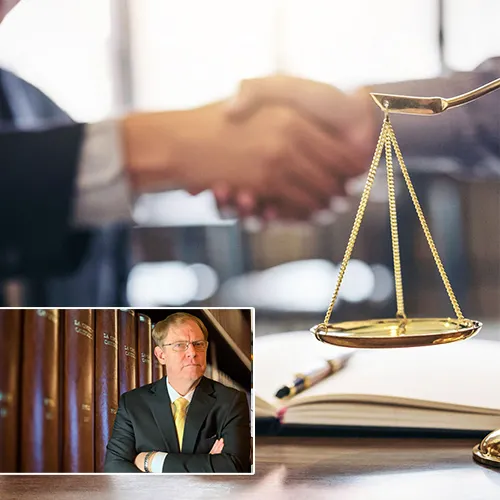Understanding DUI Checkpoint Legality: Rights and Regulations
Table of Contents []
DUI Checkpoint Legality
Understanding DUI Checkpoint LegalityAt Cirkiel Law Group, our commitment to educating the public on the legality of DUI checkpoints stands unwavering. Driving Under the Influence (DUI) checkpoints, also known as sobriety checkpoints, are a crucial tool in the fight against drunk driving, but they also raise significant legal questions. We aim to demystify the legal complexities surrounding these checkpoints by providing resources that succinctly lay out the rights of individuals and the responsibilities of law enforcement. The goal is to empower our visitors with knowledge, enabling them to navigate these situations with confidence. And should the need for legal representation arise, we connect individuals with expert attorneys. Our resources are accessible nationally, ensuring that regardless of where you are, we can provide assistance. For any queries or to book an appointment, reach out to us at (512) 244-6658.
The Legal Foundation of DUI Checkpoints

DUI checkpoints are designed to deter and identify impaired drivers, contributing to public safety. However, the legality of these checkpoints has been a topic of heated debate. In the United States, the Fourth Amendment provides protection against unreasonable searches and seizures, leading to questions about the validity of DUI checkpoints which may seem to conflict with this right.
Despite this, the Supreme Court ruled in Michigan Dept. of State Police v. Sitz (1990) that the public safety concern outweighs the "slight" intrusion of privacy that checkpoints entail. This ruling has set a precedent, allowing states to conduct sobriety checkpoints under certain conditions. But it is imperative that these checkpoints adhere strictly to legal guidelines to be considered constitutional.
Understanding Your Rights at a Checkpoint
When you approach a DUI checkpoint, it is essential to understand your rights. Law enforcement must follow stringent procedures during these stops. If they fail to do so, it could result in the dismissal of charges.
For instance, you have the right to remain silent and the right to refuse a search of your vehicle. However, refusal to take a breathalyzer test when there is probable cause may lead to arrest and enhanced penalties in many states. Knowing these nuances can profoundly affect the outcome of a checkpoint encounter.
State-Specific Laws on DUI Checkpoints
While DUI checkpoints are legal on a federal level, each state has its own laws governing their use. Some states have outlawed DUI checkpoints altogether, while others employ them regularly with specific protocols in place.
This patchwork of regulations can be confusing, but our resources can help clarify the rules in your state. Whether you're traversing state lines or staying local, awareness of these laws is essential.
How Law Enforcement Must Conduct Checkpoints
There are stringent standards that govern how law enforcement agencies must conduct DUI checkpoints. These include advance public notice of the checkpoint, neutral criteria for stopping vehicles, and limiting the time and intrusion of each stop.
When these guidelines are not adhered to, it can compromise the checkpoint's legality. If you believe that a checkpoint was not conducted properly, it is critical to seek legal counsel immediately.
What to Do If You're Stopped at a Checkpoint

Being prepared for a DUI checkpoint can alleviate stress and aid you in protecting your rights. Part of this preparation involves understanding what is expected of both the driver and law enforcement during the stop.
Remain calm, provide the requested documents, and be aware of your right to not answer incriminating questions. If you find yourself in a situation that escalates beyond a routine stop, it might be time to seek legal help. Remember that you can always contact us at (512) 244-6658 for assistance.
Tips for Handling DUI Checkpoints
- Maintain a courteous disposition when interacting with law enforcement.
- Keep your driver's license, registration, and insurance information easily accessible.
- Avoid making sudden or suspicious movements during the stop.
These simple actions can make a significant difference in your checkpoint experience.
The Importance of Non-Incrimination
Non-incrimination is a fundamental right protected by the Fifth Amendment. At a DUI checkpoint, you do not have to answer potentially self-incriminating questions.
Politely declining to answer such questions is within your rights and does not provide lawful grounds for arrest on its own. However, always do so respectfully to maintain a peaceful interaction.
When to Contact an Attorney
If you have been detained or feel your rights have been violated at a DUI checkpoint, contacting an attorney is a prudent step.
An experienced lawyer can provide guidance and representation if necessary. And if you're not sure who to turn to, feel free to reach out to us at (512) 244-6658, and we can connect you with legal expertise tailored to your situation.
Navigating the Situation: Your Conduct at DUI Checkpoints

Your conduct at a DUI checkpoint can greatly influence the encounter's outcome. Therefore, it is crucial to be informed about the legal aspects of these checkpoints and how to behave during a stop.
We encourage individuals to educate themselves on these matters, as it can drastically reduce the risk of an unjust outcome. Acting in an informed, respectful manner promotes a smoother process for all involved.
Appropriate Behavior at a Checkpoint
Projecting calm and cooperation at a DUI checkpoint goes a long way. In addition to being polite, ensure your vehicle's interior lights are on if it's nighttime, and keep your hands visible to law enforcement officers.
This not only helps to put the officers at ease but also demonstrates that you have nothing to hide, which may expedite your stop.
Understanding the Officer's Duties
Law enforcement officers have a duty to ensure public safety while respecting the rights of individuals. They are trained to handle DUI checkpoints with a balance of firmness and fairness.
When this balance is tipped, and you feel that an officer has overstepped their authority, documenting the event and seeking legal advice are important steps to take.
Deciding to Undergo a Field Sobriety Test
At a DUI checkpoint, you may be asked to perform a field sobriety test. Be aware that you can refuse these tests, but this may have implications depending on the laws in your state.
Should you decide to submit to the test, performing to the best of your ability while understanding that these tests can be subjective is key. If you're unsure about your rights regarding these tests, contacting legal counsel is advisable.
Connecting With Legal Expertise Through Cirkiel Law Group

At times, understanding your rights and navigating the proper protocols during DUI checkpoint encounters can be overwhelming. That's where Cirkiel Law Group steps in. We offer a wealth of information and connect individuals with seasoned attorneys who specialize in DUI laws.
Whether you've been stopped at a checkpoint or just want to be prepared for the possibility, we can assist. Advice is just a phone call away at (512) 244-6658.
Why Expert Legal Representation Matters
Having a legal expert by your side during DUI proceedings can be the difference between a fair trial and a harsh punishment. Expert attorneys understand the nuances of the law and can navigate complex legal systems to protect your rights.
They can scrutinize the details of the checkpoint and your arrest, possibly identifying areas where your rights may have been infringed upon.
Our Network of Attorneys
We have fostered a network of respected attorneys across the nation, versed in every aspect of DUI law. This valuable resource ensures that regardless of where you're located, you have access to top-tier legal support.
When you choose to work with one of our recommended attorneys, you're choosing a path paved with expertise and dedication.
Setting Up a Consultation
Feeling unsure about the legality of a DUI checkpoint encounter or require legal representation? Setting up a consultation is a straightforward process.
Contact us, and we'll guide you through the steps to connect with an attorney who understands your needs and can offer personalized legal counsel. Remember, help is just a call away at (512) 244-6658.
Final Notes: Staying Informed and Getting Help

At Cirkiel Law Group, we believe that education is a powerful tool in understanding and asserting one's rights. We provide detailed information on the legality of DUI checkpoints and aim to build awareness so individuals can face these scenarios with confidence and knowledge.
Should you find yourself in a position where legal assistance is necessary, or if you simply have questions about DUI checkpoint processes, do not hesitate to contact us. We are here to ensure that you are informed and supported, no matter your situation.
Your Roadmap to Legal Clarity
We've created a comprehensive set of resources to guide you through the legal maze of DUI checkpoints. With Cirkiel Law Group, clarity is within reach.
Our goal is to ensure you never feel alone or uninformed when faced with the complexities of DUI checkpoint law. Our support structure is designed with your best interests in mind.
Immediate Assistance Available
In need of immediate legal support? Our team is ready to provide the resources and connections necessary to help you navigate your situation effectively.
Quick response times and attention to your needs underscore the quality of service we are committed to delivering. Assistance is just one call away at (512) 244-6658.
Get in Touch Today
We invite you to make use of our services and gain the peace of mind that comes with knowing your rights. For information, support, or to schedule an appointment with a lawyer, please reach out to us.
Your journey to legal understanding and advocacy starts here. Let us be your partner in navigating the intricate landscape of DUI checkpoint law.
In closing, we at Cirkiel Law Group are here to serve as your beacon through the storm of legal uncertainty surrounding DUI checkpoints. Our dedicated team, extensive resources, and robust network of attorneys are all at your disposal. Should you require our services, a helping hand is only a phone call away at (512) 244-6658. Together, we can ensure that your rights are preserved, and your voice is heard.
Previous Page

